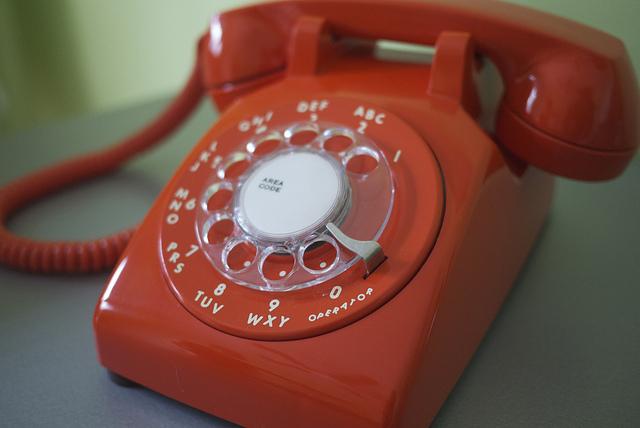Suzanne Marie Hopcroft
Apple has small bones, brushes her hair in long strokes before bed, knows what she wants from the universe and how to ask. Stray puppies gravitate toward her doorstep, sensing that Apple understands what it means to love. Offers of employment fall into her warm, waiting lap — like the job she landed a few weeks ago at the tiny upscale Italian place on Houston Street, the one whose kitchen I’ve been toiling in for years and where she now greets the lawyers and doctors and the little heiresses with their hair coiffed just so, who probably feel a sort of kinship with Apple and the smooth silk cocktail numbers that she wears as hostess. Declarations of fidelity appear unexpectedly, as though sent from somewhere up in outer space — like the one my once-lover told me that he’d offered her last Tuesday, just before he packed his torn-up jeans and worn-out kicks and fraying tees, the ones two sizes smaller than my own. I know their softness gloves her now like this yellow rubber does my sausage fingers, and for three nights straight and three more after that, I’ve been up to my elbows in suds trying to shake the thought.
Of course, it wasn’t always like this. Apple’s memory is selective, which is probably why she never seems to remember the games we used to play as kids, how the sun would stream through attic windows to crown us both queens of the dust, the days when we pretended our way deep into the kind of fantasies that are only woven by little girls whose parents can’t afford the price of electric pianos and dollhouses big enough to fit two ten-year-olds. That was before her father climbed his way out of unemployment, before he piled her and her hippie mother and their possessions into their slowly rusting van and drove until they reached a land of plenty on the coast where he would make her princess of a dot-com kingdom, which I always envisioned as being tucked away against the clouds instead of nestled in a valley whose name I could never remember but that they were always talking about on television. We rarely saw each other after that — though in all the years when I continued to pretend, when the sickly smell of my own father’s breath and the sound of furniture crashing in the dark would send my mind running for shelter, it was her life I imagined I was inhabiting.
And then suddenly one day she was here again. Staring me in the face, fixing the blueness of her gaze on me, blinking those eyes I had envied since she’d gone. Here — my cousin. Asking her uncle for a job and then somehow, in a terrible flash, snapping up the place I had spent entire actual years sweating for, because it was no secret that I’d hoped my loyalty to the scalding dishwater and the suds would finally break me from the confines of my father’s cherished dictum. Pretty girls at the front of the house, plain ones in the back. Apple and I are blood, and this makes me wish that I could love her, makes me wish I wanted to enfold her in my fleshier arms and press the largeness of my breasts against her tiny ones, which I imagine being hard like little nectarines; her body is not so different from the ones we both had a decade back. But instead I loathe her now: the way her empty spaces balance all my bulk, the dells and hollows of her collarbone and her cheekbones and the backs of her ankles. I felt this even before she swooped in on Tony and I started seeing all her angles as little razor edges slicing through my happiness when I closed my eyes.
Now Apple is what I’m thinking about as I reach for the next dinner plate, feel the slippery surface of the next wine glass between my thumb and forefinger, hear it squeak against this latex covering that has become like skin to me. She’s what I’m thinking about as I let the tines of the next fork almost pierce the yellow rubber, feeling the pressure and the sharpness, wanting their bite because it satisfies some need to feel. She’s what I’m thinking about as I set the last pot on the counter to drip-dry and turn to heft my weight against the door, its hinges squealing at my touch, then watch her bare shoulder blades become visible inch by inch as it swings open. She’s what I’m thinking about as I trace the dents that her thighs make in the skirt of her dress, dents that make me picture Tony’s hands roving where my eyes have been. I begin to feel the nausea rising as though her thighs were rotting food, the slop that we empty into the gutters when the night is done, not just the flesh that has seduced away what was mine once or should have been.
She has the house phone pressed between her shoulder and her ear, and I hear her murmur something punctuated with a giggle. It’s the giggle that snaps the cord that’s been binding up my rage, and the ends recoil and all my ire is laid bare and I bound across the room feeling it flowing, boiling, heating me up to the bottoms of my fingertips — which I press tight against Apple’s scalp in the moment before I grab a clump of her hair and pull. Hard. She barks the yelp I’ve been wanting to let out myself, and her eyes with their darting apprehension only feed my urge to drag her with me into the steamy, sweaty kitchen underworld that I inhabit. So I keep hold of her while she protests and squirms and tow her behind me, back through my portal to the land of the plain girls and the fat ones, where I discover that the sink is stopped up with soggy lettuce remnants and slices of slimy onion. She’s still squealing and protesting when I shove her head toward the dirty standing water. I dunk her savagely until either she’s stopped screaming or her being underwater is muffling the sound.
When I finally let her up, the lettuce fragments and the onions are dotting her dark hair and she’s gasping and fuming at the water streaming down her face and dress. Welcome to my life, I tell her, and I walk out. I know that our equality is fleeting: tomorrow morning the sun will rise as it always does and shine on Apple the rail-thin girl, Apple the stinking rich girl, Apple the girl with a brand new love and a brand new job and all of those things that seem so simple and are yet so entirely faraway to some of us — the more unlucky ones, the ones who know what they want from the universe but haven’t the faintest inkling of how to ask. Still, I play and replay the image of her fearful look as I strut through the sea of tables and over the threshold, and I think to myself that perhaps what I’m seeing there is not just terror but also a horrible glimmer of recognition. In the morning, I will tell myself that maybe now she remembers our attic days, that maybe they’ll temper her sweet enjoyment of my stolen nights. That maybe she’ll think again before she betrays her blood, if only to escape another dunking.
Suzanne Marie Hopcroft just saw her first published piece appear in Camroc Press Review in July; she now has short fiction forthcoming in Gargoyle Magazine, >kill author, JMWW, Corium Magazine, DOGZPLOT, and other lovely literary magazines. Suzanne is a PhD student in Comparative Literature and spends the bulk of her days reading and writing about twentieth-century narrative in a decaying pudding factory across the water from New York City.



